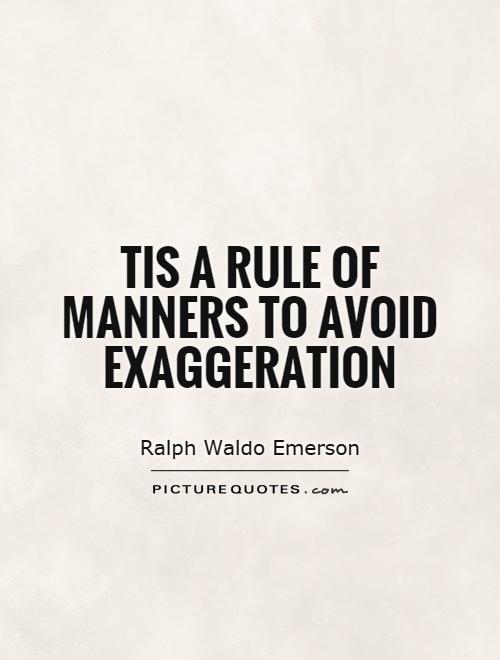Tis a rule of manners to avoid exaggeration

Tis a rule of manners to avoid exaggeration
Ralph Waldo Emerson, a renowned American essayist, lecturer, and poet, was a firm believer in the importance of honesty and integrity in all aspects of life. In his works, Emerson often emphasized the value of speaking the truth and avoiding exaggeration. He believed that exaggeration not only distorts reality but also undermines one's credibility and integrity.Emerson's philosophy on avoiding exaggeration can be seen in his essay "Self-Reliance," where he encourages individuals to trust their own instincts and beliefs rather than conforming to societal norms or expectations. He argues that exaggeration is a form of dishonesty that ultimately leads to self-deception and a lack of authenticity. By exaggerating the truth, one loses touch with their true self and becomes disconnected from their own values and beliefs.
Emerson also believed that exaggeration can have negative consequences on one's relationships with others. When individuals exaggerate their accomplishments or abilities, they create false expectations and perceptions that can ultimately lead to disappointment and distrust. By being honest and truthful in their interactions with others, individuals can build stronger and more meaningful relationships based on trust and mutual respect.












 Friendship Quotes
Friendship Quotes Love Quotes
Love Quotes Life Quotes
Life Quotes Funny Quotes
Funny Quotes Motivational Quotes
Motivational Quotes Inspirational Quotes
Inspirational Quotes